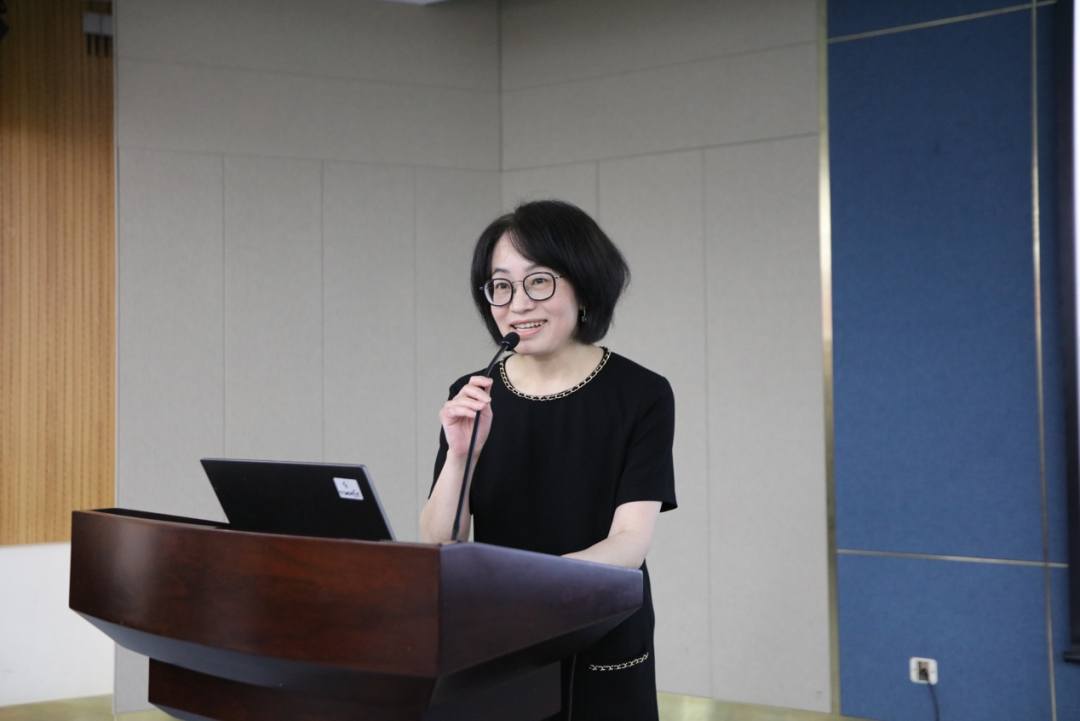From July 3 to 7, 2023, the fifteenth session of Zhejiang University's International Frontiers of Communication Theory and Research Methods advanced workshop was successfully held at Zhejiang University. This session was themed Global Digital Equality: Technological Evolution and Social Transformation, co-organized by Zhejiang University, University of Wisconsin, University of Pennsylvania, the International Communication Committee of China Journalism History Association, and the Internet Communication History Committee of China Journalism History Association. Over the five-day period, experts, scholars and participants from around the world delved into major issues facing the international communication community through keynote lectures, offline visits, and paper presentations, exploring the theory and practice of global digital equality to address the challenges of global changes.
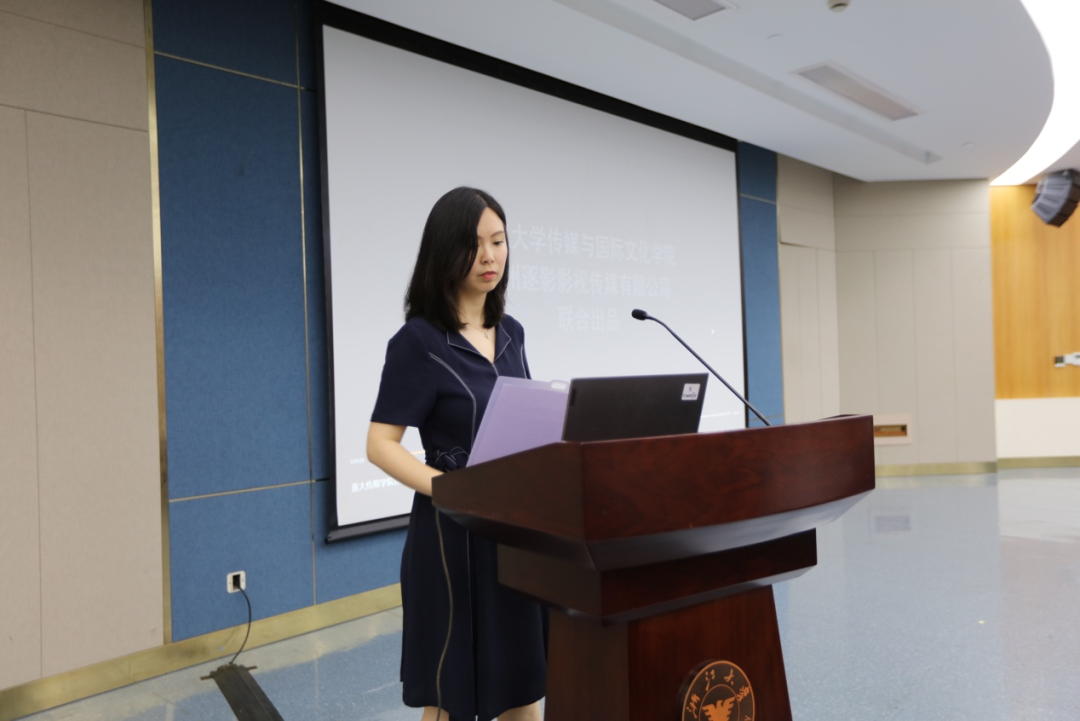
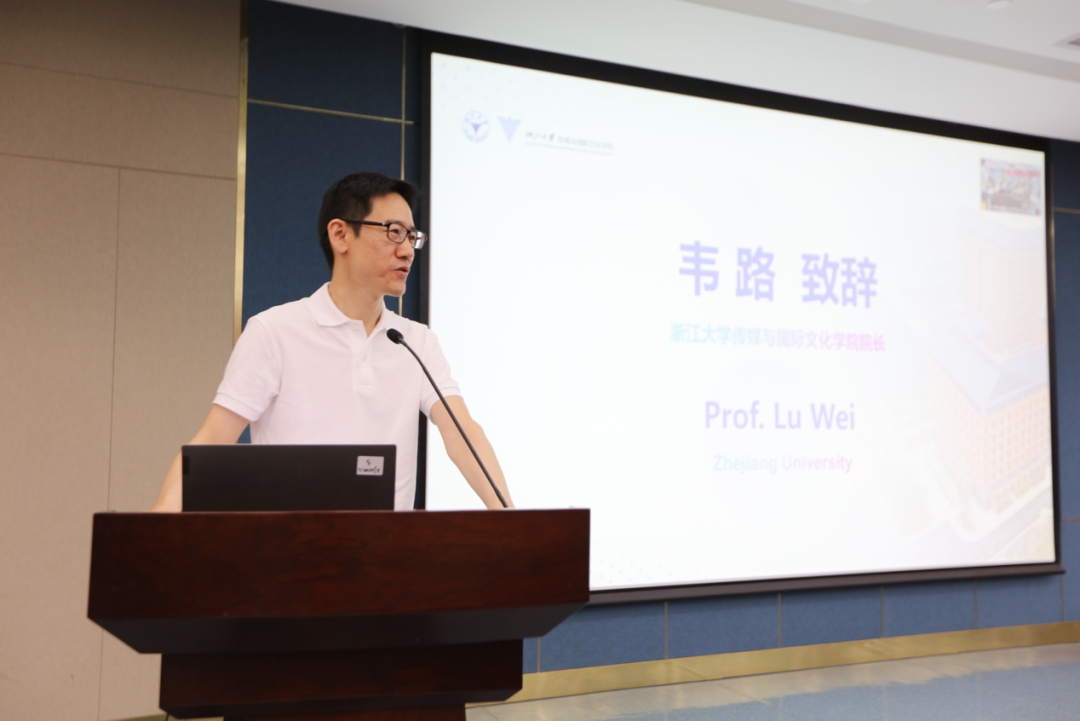
On the morning of July 3rd, during the opening ceremony, Professor Pan Zhongdang from the University of Wisconsin-Madison and Professor Yang Guobin from the University of Pennsylvania delivered online speeches, sharing their academic insights and expressing good wishes with the summer class members. Professor Wei Lu, Dean of the School of Media and International Culture at Zhejiang University, narrated the origin of the summer program, expressed delight for the offline academic gathering, and wished everyone fruitful achievements and realized dreams in the summer class. The ceremony was hosted by Dr. Li Siyue, a researcher from Zhejiang University’s Hundred Talents Program, and a group photo was taken in front of Meng Minwei Building.
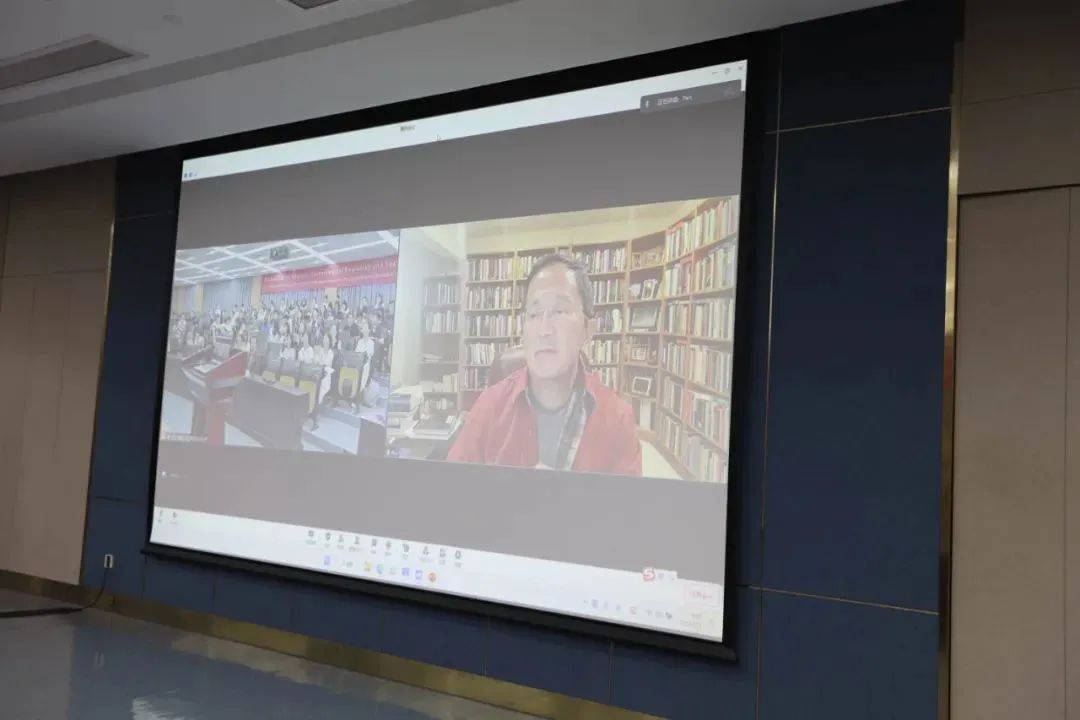
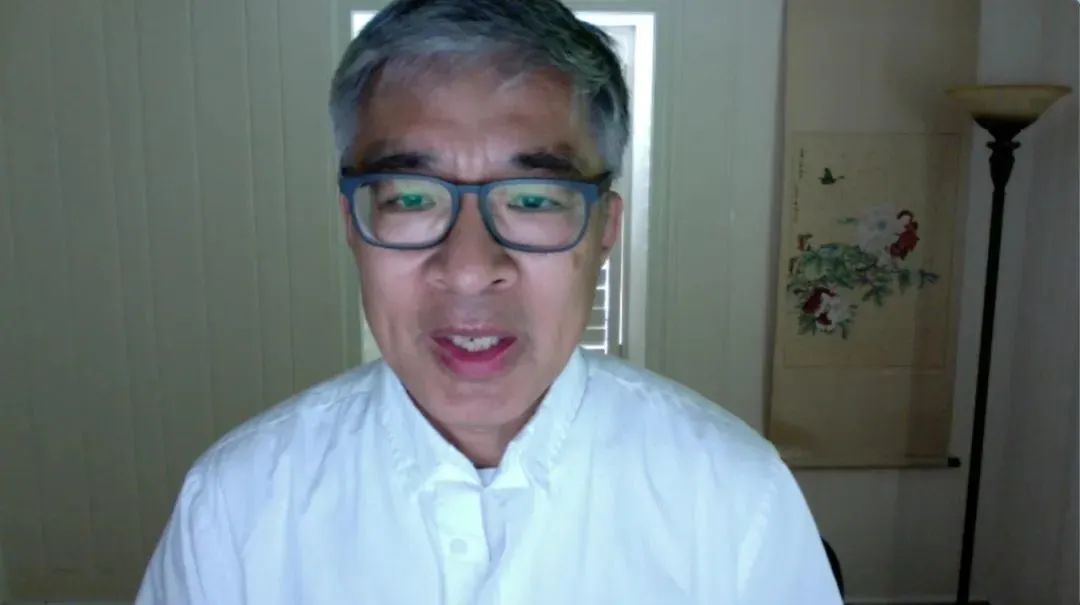
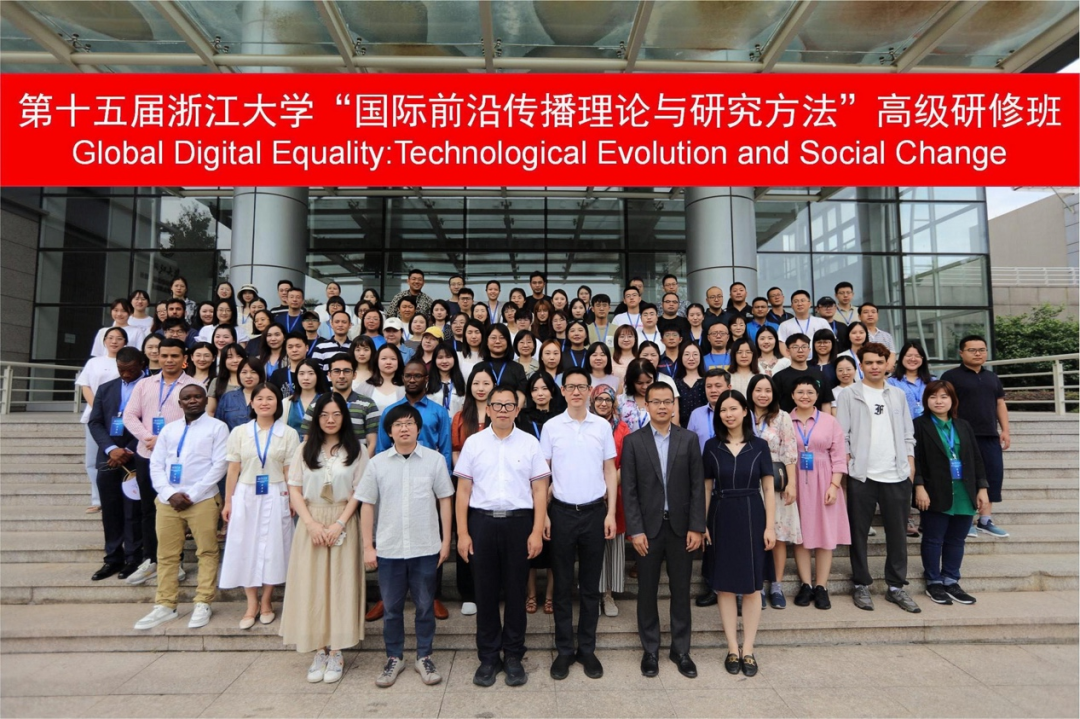
Following the opening ceremony, Professor Wu Fei from the School of Media and International Culture at Zhejiang University delivered a lecture titled Digital Commonality: Understanding the New Hypothesis of Social Interaction in the Digital Age, hosted by Dr. Huang Guangsheng, a researcher from Zhejiang University’s Hundred Talents Program. Professor Wu started from the background of digital existence, stating that digitalization, networking, and informatization have caused significant changes in the way humans exist, leading to a brand new form of existence. He reviewed the origins and development of public sphere theory and proposed the theoretical hypothesis of digital commonality to address the deficiencies of previous theories. Professor Wu emphasized that digital commonality stresses the commiseration born from a community of shared future for humanity, advocating for a “class” mindset and practice.

In the afternoon of July 3rd, Assistant Professor Jiang Shaohai from the National University of Singapore presented a lecture titled Digital Divide and Health Inequality: Theory and Application, hosted by Dr. Chen Hongliang, a researcher from the Hundred Talents Program. Professor Jiang pointed out that the agenda of health communication encompasses various aspects including digital divide, health inequality, electronic health, mobile health, and health intervention design. He analyzed these agendas in detail, defining the digital divide as the difference between those who have or can access Information and Communication Technologies and those who don’t or can’t, encompassing four types: access to attitude mentally or psychologically, material access, technical access, and usage access.
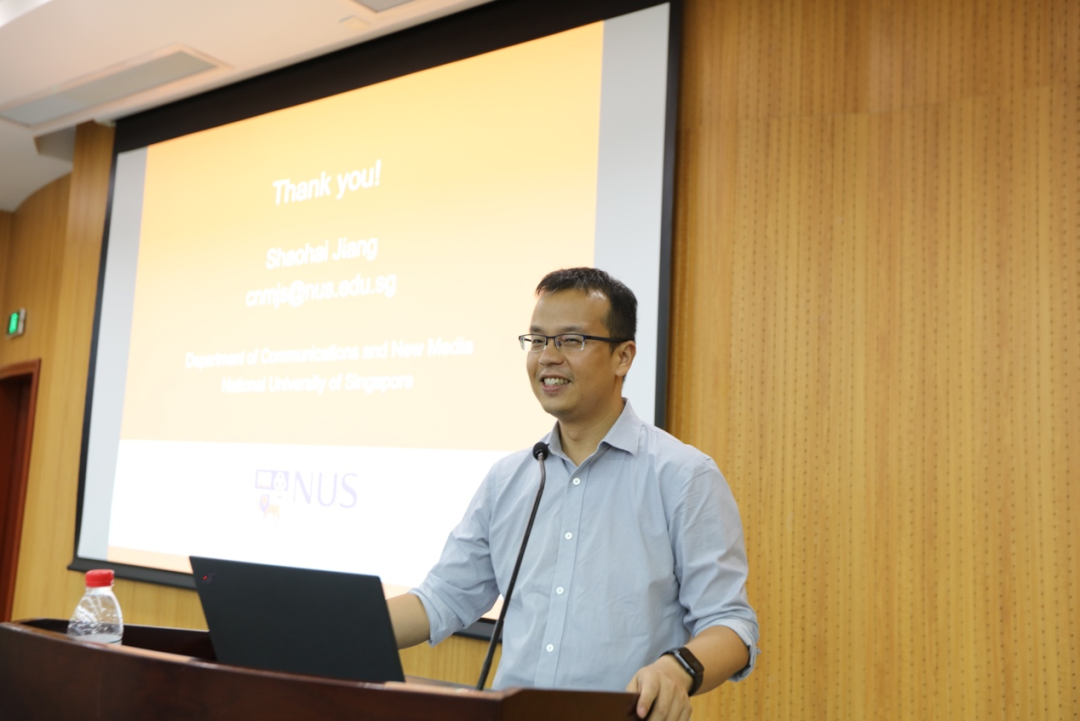
On the morning of July 4th, Professor Fang Xingdong from the School of Media and International Culture at Zhejiang University brought a lecture titled From Cathedral to Bazaar -- New Paradigm of Trajectory Communication in Digital Era and China’s Strategic Choices, hosted by Associate Professor Zhang Hong. Professor Fang initiated the lecture with his recent experiences from a trip to Europe, questioning why the West lacks international communication. In the network era, all domestic communication is international communication, and all state communication is also domestic communication. Therefore, it’s necessary to reassess international communication, which he deemed as a winning or losing hand for China’s journalism and communication discipline. International communication has a Chinese mission and significance as the new global information dissemination pattern has fully formed, and communication is reshaping social order and international order. As an applied discipline, the legitimacy of journalism and communication may be reshaped through international communication.
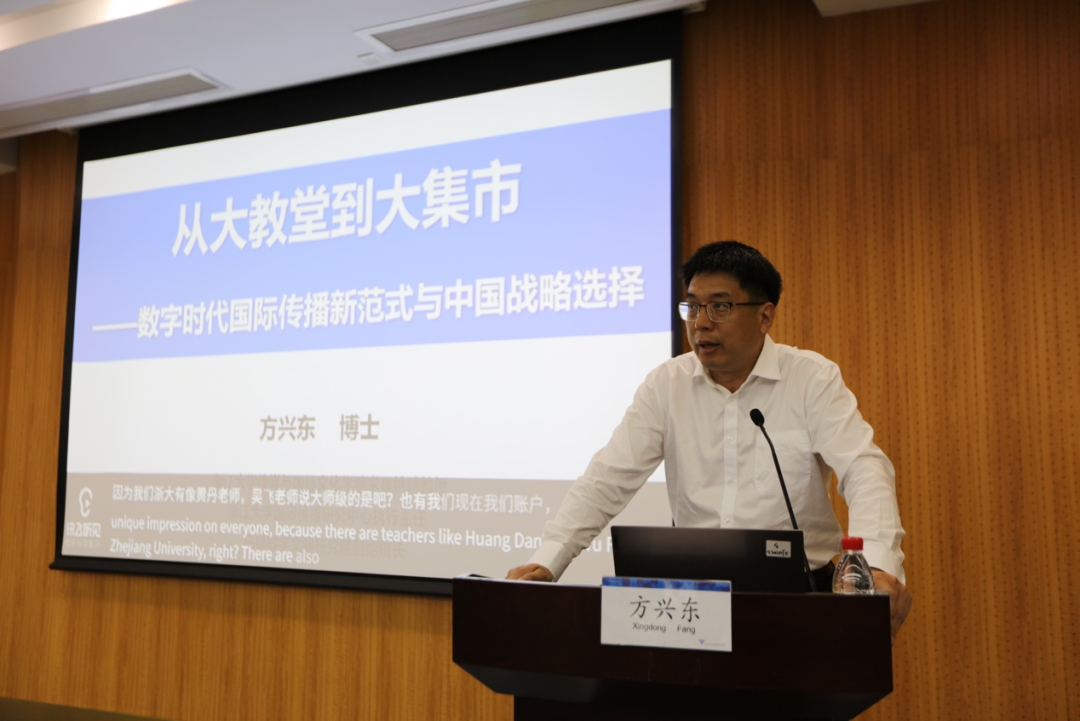
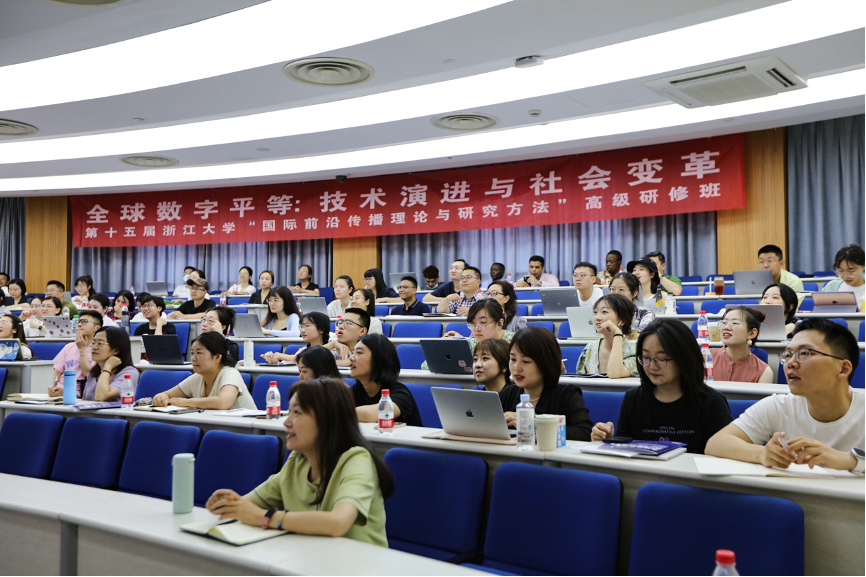
In the afternoon of July 4th, participants were arranged to visit the Liangzhu Museum and Liangzhu Ancient City Relics Park. At the Liangzhu Museum, participants learned about the ancient Liangzhu culture from the Neolithic period in the lower reaches of the Yangtze River with a guided tour. Following that, they toured the Liangzhu Ancient City Relics Park on a sightseeing car, experiencing the world heritage site of Liangzhu culture firsthand.
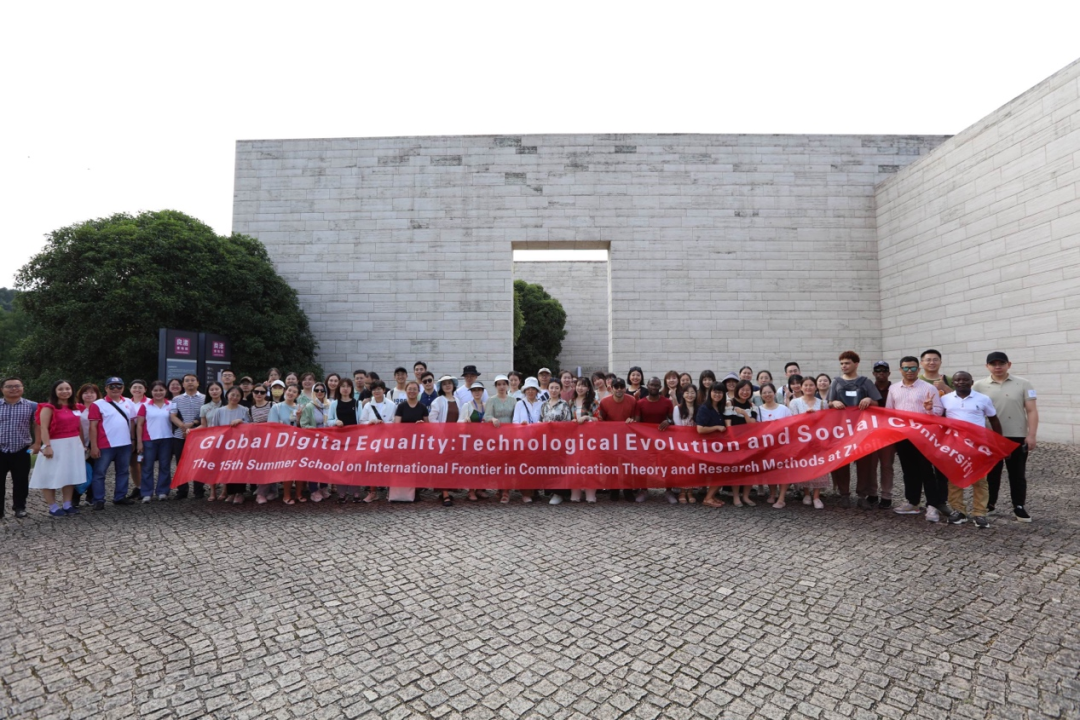
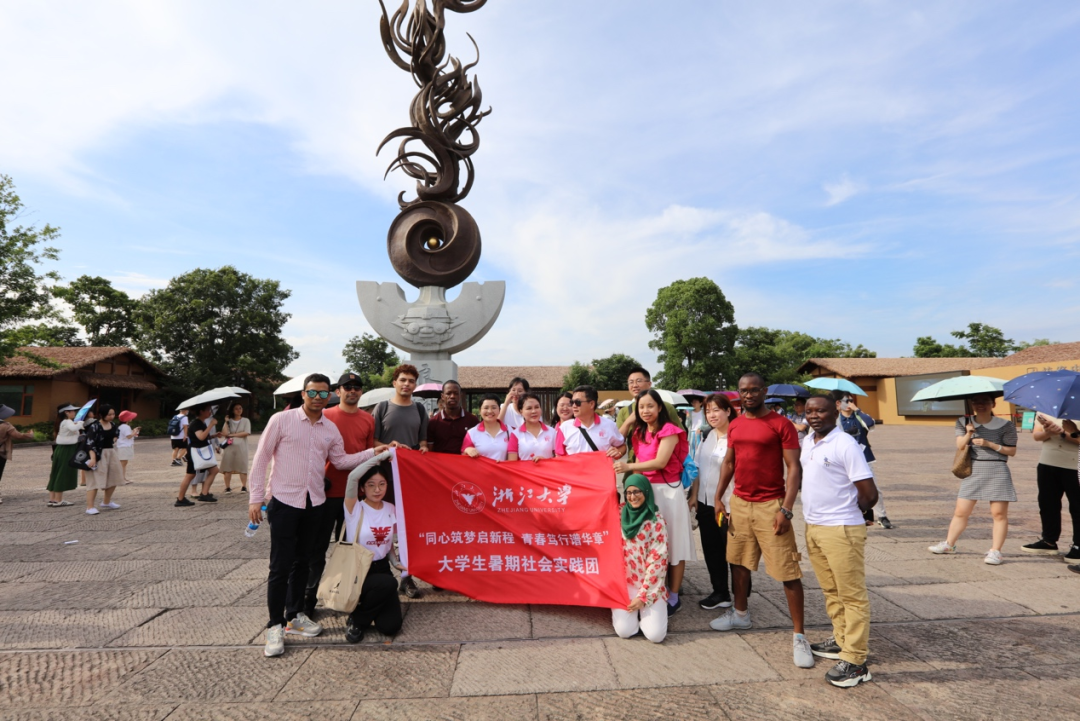
On the morning of July 5th, Professor Zhong Bu from Hong Kong Baptist University presented a lecture titled Research Ideas and Opportunities: Communication Research in the Age of Artificial Intelligence, moderated by Dr. Huang Qing from Zhejiang University. Based on the sharing and discussion of several research cases, Professor Zhong emphasized that impactful research addresses social issues, seeks possible solutions, and establishes trust with the public by connecting problems with potential solutions to effect meaningful change. He also shared his recent research interests in communication, including the social and psychological perspectives in information processing, the social impact of digital technologies, the influence of social media communication, health information use and medical decision-making, and the consequences of AI in healthcare. In the Q&A session, Professor Zhong engaged in a lively and in-depth discussion with scholars and students from around the world.

In the afternoon of July 5th, Professor Liu Youli from City University of Hong Kong delivered a lecture titled Embracing Equality in the Use of Chatbots in the Era of Artificial Intelligence, hosted by Associate Researcher Liu Jia from Zhejiang University. Professor Liu noted that in the AI era, while human life and interaction modes are being restructured, more inequalities and biases are emerging. Hence, issues like privacy protection, digital equality, and digital ethics should be given more attention. She shared her team’s research on facial recognition and privacy issues, chatbots, smart speakers, and information policy regulations, providing students with insights on how to conduct research, including how to find suitable research models and theories.
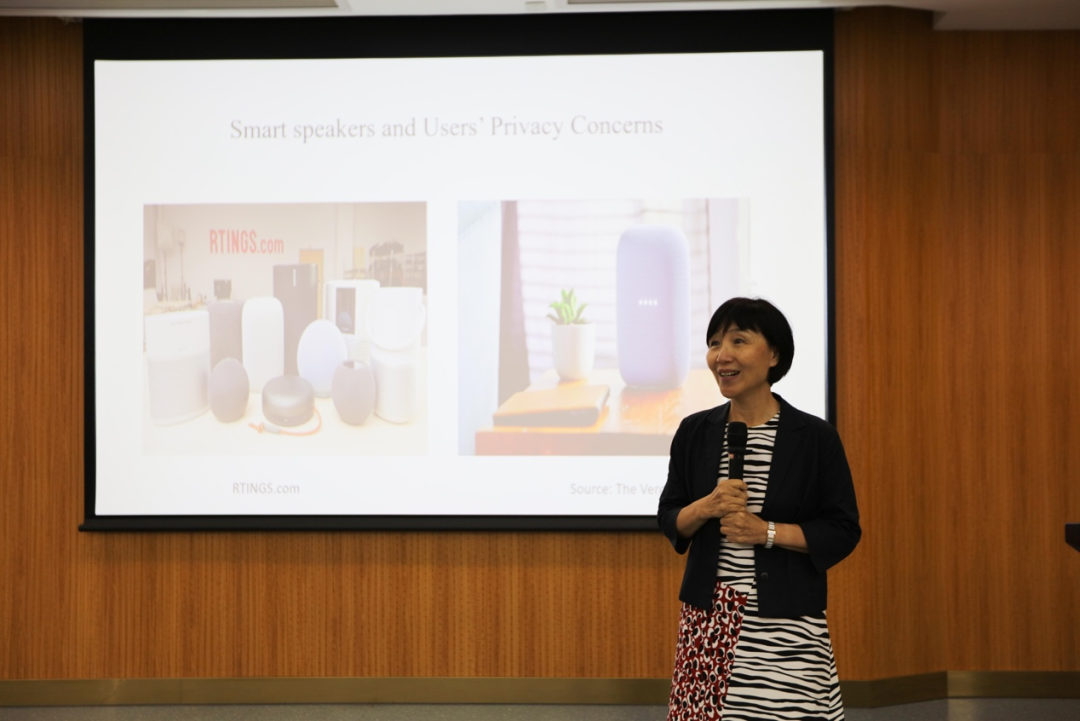
On the morning of July 6th, Associate Professor Zhang Juman from Long Island University presented a lecture titled Describing Amplified Voices on Social Media through Text Mining, moderated by Professor Wu Yun from Zhejiang University. She introduced the topic by briefly explaining AI, machine learning, and text mining, and then used the Weibo Hot Search list as an example to demonstrate different sentiment analysis models’ text processing effects. In the latter half of the lecture, Associate Professor Zhang shared research on discussions related to COVID-19 and HIV vaccines on Twitter, and introduced LDA topic modeling, network analysis, and visualization research methods. She concluded with a summary of cases combining journalism and AI.
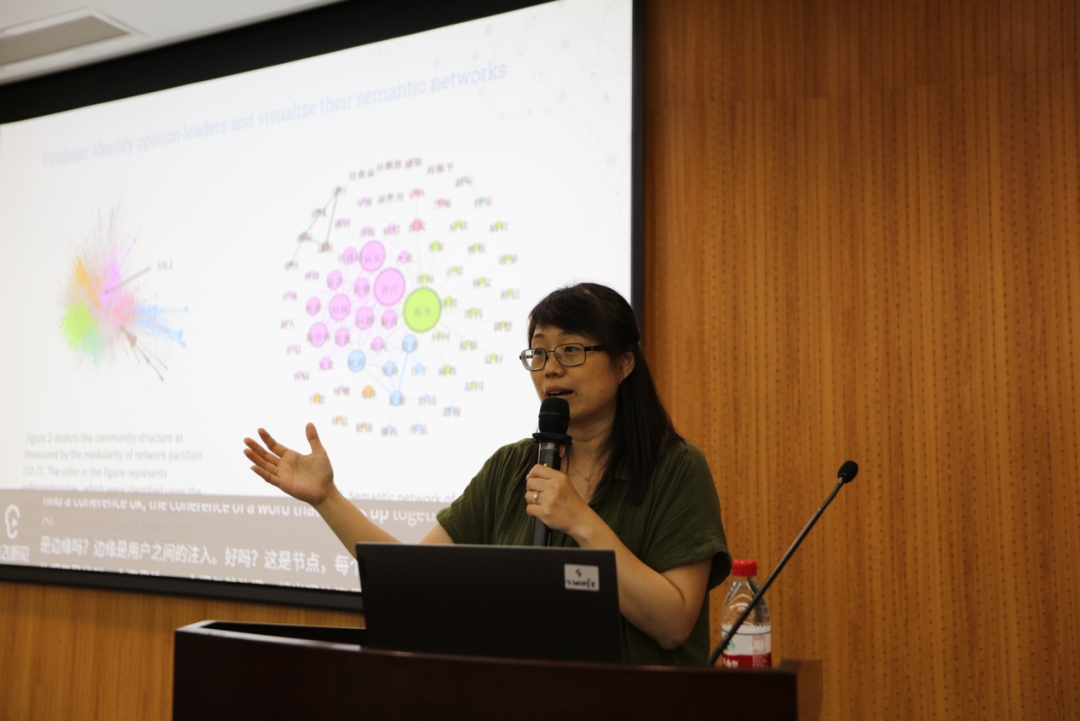
In the afternoon of July 6th, Associate Professor Cheng Yang from North Carolina State University presented a lecture titled Organizational and Public Equitable Communication? Discussing Interactive Relationships on Smart Media, moderated by Dr. Ji Yingru from the Hundred Talents Program. Associate Professor Cheng first introduced the concept of Organization and Public Relations (OPR) and shared some research on chatbots in relation to AI’s impact on OPR. He introduced the six dimensions of Changing Organization and Public Relations (COPR) and projected future research landscapes in AI and COPR fields. Lastly, he shared personal experiences on journal submissions, encouraging students to maintain a positive and optimistic attitude.
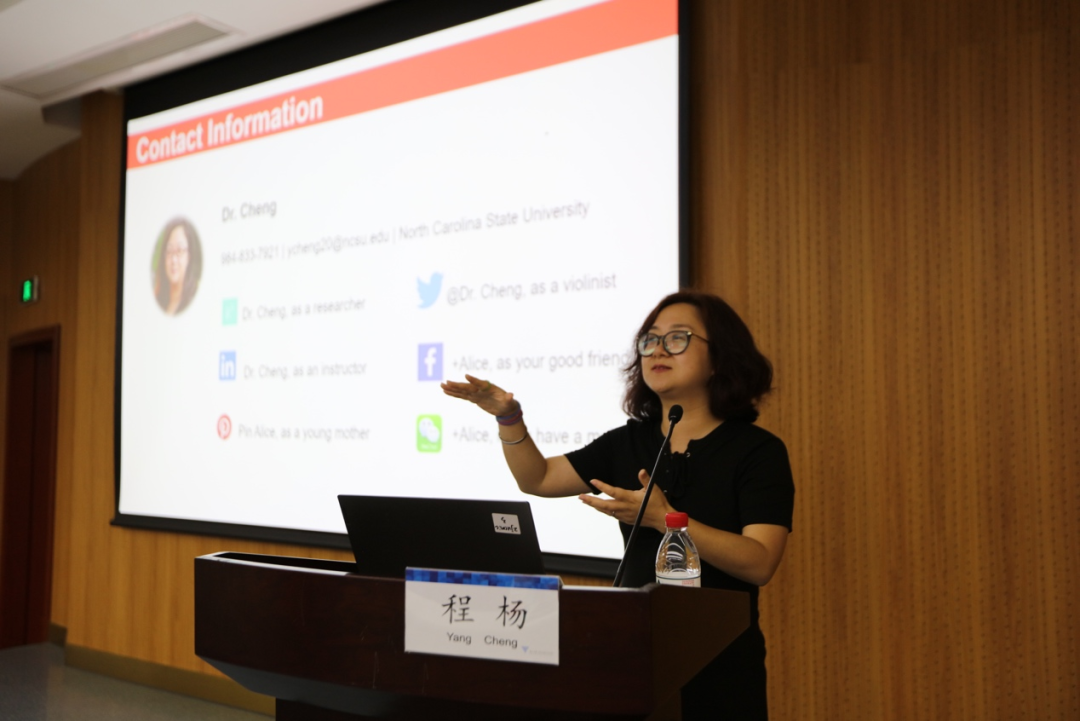
On the morning of July 7th, Dr. Lin Jian from the School of Media and International Culture at Zhejiang University conducted a lecture titled Understanding Digital Content in the Smart Media Era: Internet Celebrities, Neural Imaging, and Algorithmic Culture, moderated by Associate Researcher Cheng Xiaoxiao from Zhejiang University. Focusing on algorithmic recommendations, Dr. Lin delved into several noteworthy issues triggered by social media platforms, questioning how to understand current online participatory culture and the impact of high automation induced by smart technologies on our popular culture. Using the international version of Douyin, TikTok, as a case, he analyzed the algorithmic database’s influence on user identity and self from a media culture research perspective.
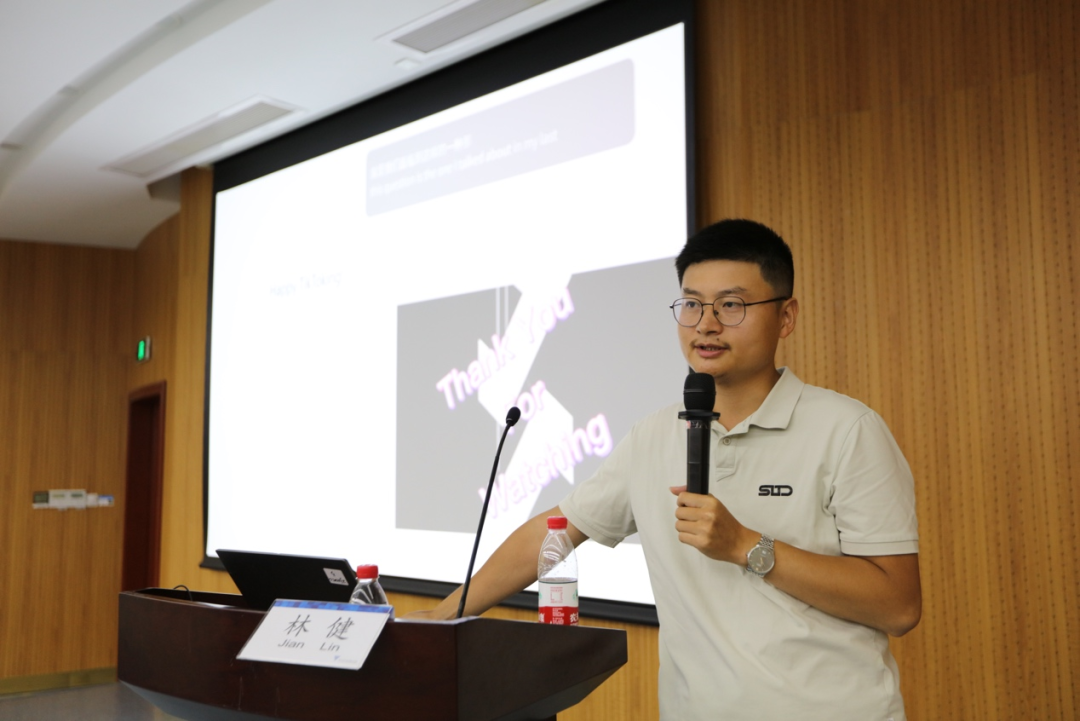
In the afternoon of July 7th, ten young communication scholars from around the globe, representing the workshop participants, were divided into two groups for paper presentations and readings. Experts from the School of Media and International Culture at Zhejiang University, including Li Dongxiao, Liu Yusi, Zhang Zike, and Gao Fangfang, provided detailed and insightful comments, offering suggestions for further contemplation. The reading session was moderated by Postdoctoral Research Assistant Sun Mengru from Zhejiang University.
After recognizing outstanding papers, Professor Wu Hongyu from the School of Media and International Culture at Zhejiang University delivered a closing speech, expressing deep affection for the summer workshop and gratitude towards the faculty and participants for their involvement. She declared the summer workshop a complete success, concluding the enriching academic event.
